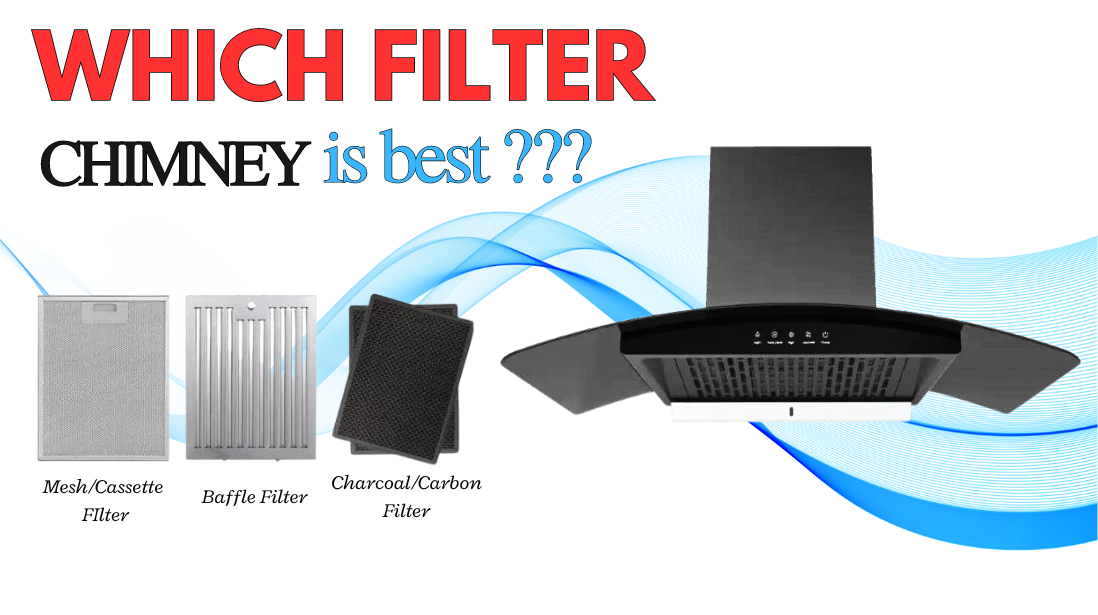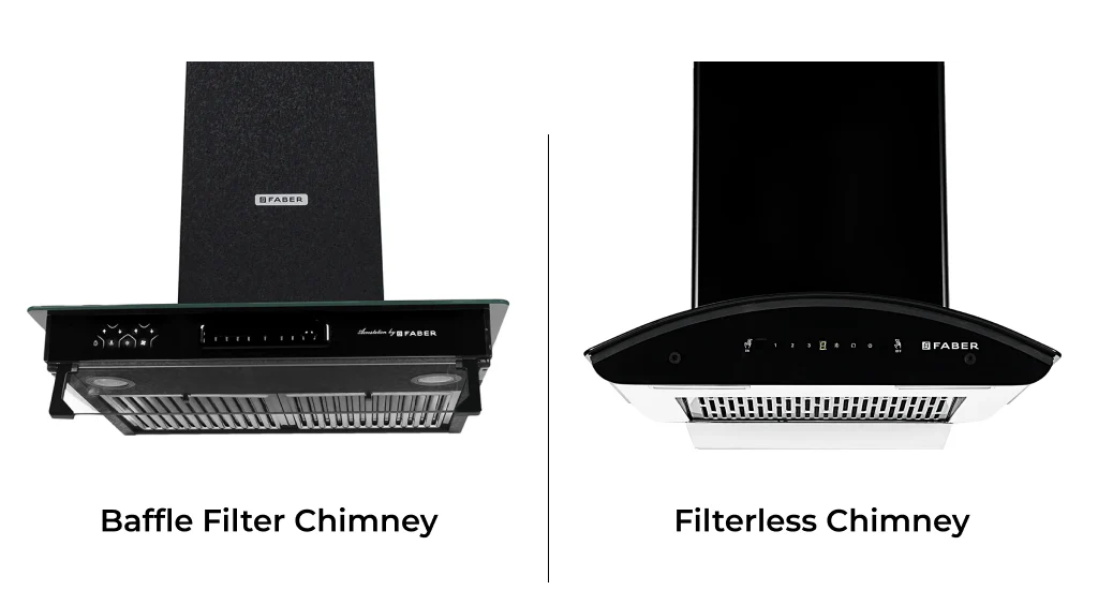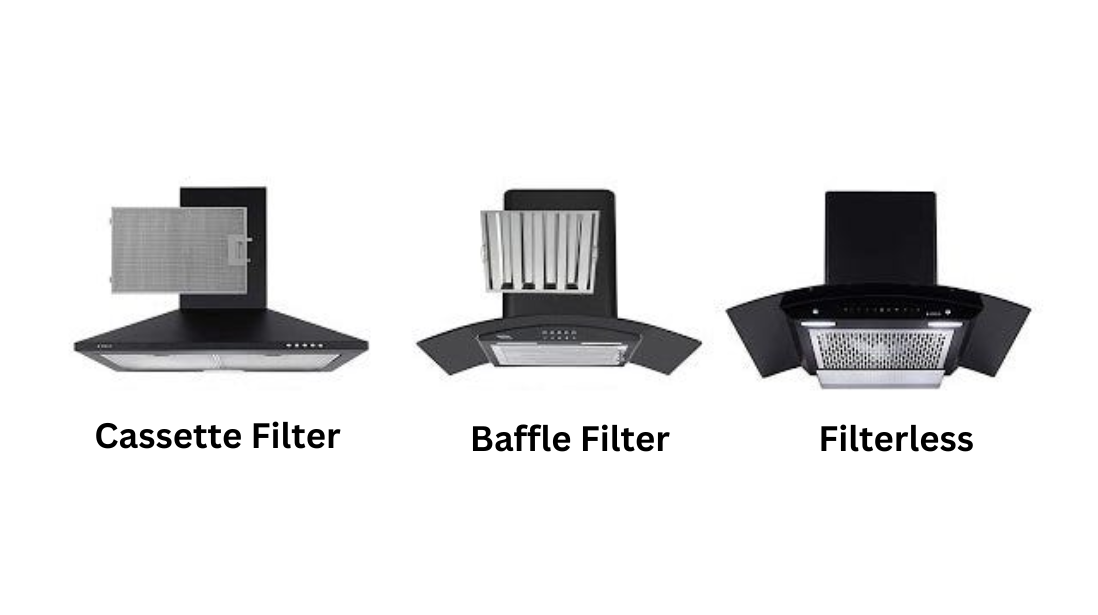Which type of filter is best for a chimney?
Published on 2024-08-26
Which type of filter is best for a chimney?

A kitchen chimney is important for keeping your kitchen environment clean and healthy.Choosing the right kitchen chimney involves considering several factors, with the type of filter being one of the most important. Filters are essential for capturing grease, smoke, and odors, keeping your kitchen environment clean and fresh. However, not all filters are the same, and the ideal choice varies based on your cooking style, maintenance requirements, and kitchen configuration. In this blog, we’ll delve into the three primary types of chimney filters—Mesh, Baffle, and Charcoal.
Advantages of employing kitchen chimney filters
- Better Air Quality
- Grease Buildup Has Been Reduced
- Removal of Unpleasant Odor
- Safeguards kitchen surfaces and furniture
- Enhanced Safety

Types of chimney Filter
Mesh Filter: Mesh filters are made of multiple layers of aluminum or stainless steel mesh. These layers are designed to trap grease and oil particles as air passes through them.
Baffle Filter: Baffle filters are made of overlapping layers of stainless steel or aluminum plates. These filters work on the principle of "cut and chop" technology, where the air is forced to change direction as it passes through the filter. This change in direction causes grease particles to settle inside the filter.
Charcoal/Carbon Filter: Charcoal or carbon filters are primarily used in ductless chimneys. These filters are made of charcoal granules that absorb odors and smoke, improving the air quality in your kitchen.

The best type of filter for a kitchen chimney largely depends on your cooking style, but baffle filters are generally considered the best option.
Efficiency in Heavy Cooking: Baffle filters are designed to handle the heavy and oily cooking common in many households. Their unique design, with overlapping stainless steel or aluminum plates, forces the air to change direction, causing grease particles to settle inside the filter without clogging it quickly.
Low Maintenance: Unlike mesh filters, which require frequent cleaning due to clogging, baffle filters need less frequent maintenance. This makes them more convenient for busy kitchens.
Durability: Baffle filters are more durable than other types, ensuring long-term efficiency and performance.
Things to consider when selecting a Kitchen Chimney and Filter
Cooking Style and Frequency: If you cook frequently and use a lot of oil or spices, baffle filters are ideal because they efficiently trap large amounts of grease. For those who cook less often or prepare lighter meals, mesh or aluminum filters might be more appropriate.
Chimney Size and Power: Ensure that the filter you select matches the size and power of your kitchen chimney. The filter should adequately cover the entire exhaust area and possess sufficient suction capacity to effectively eliminate smoke, fumes, and odors.
Cleaning and maintenance requirements: Baffle filters are generally easier to maintain compared to mesh filters, which require more frequent cleaning due to their finer mesh layers. Carbon filters, on the other hand, need to be replaced regularly, so factor in the extra cost and effort involved.
Filter Replacement expense: Baffle and mesh filters can be cleaned and reused, making them more economical over time. In contrast, carbon filters need to be replaced every few months, so it's important to account for the recurring expense of replacement.
























